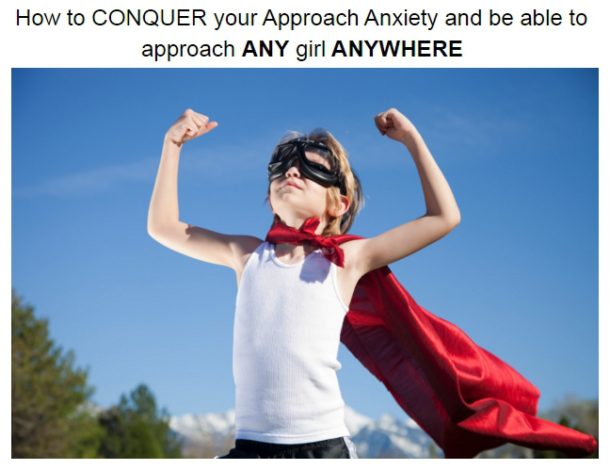[et_pb_section admin_label=”section”][et_pb_row admin_label=”row”][et_pb_column type=”4_4″][et_pb_text admin_label=”Text” background_layout=”light” text_orientation=”left” text_font_size=”14″ use_border_color=”off” border_color=”#ffffff” border_style=”solid”]
Being tossed around by the waves of emotion sucks, but is natural at the beginning. Rejections and harsh words throw you down and make you feel miserable and discarded. Praise, compliments, and any initial successes you might have, on the other hand, make you feel elated, ecstatic even.
Beyond the abyss of game lie the calm seas, but you must pilot through the storm to get there. The storm will test you. It will throw every curve imaginable your direction, and if you are still reacting, it’ll throw the same curve back at you again and again until you learn your lesson and it no longer affects you. Like a Buddhist monk, whacking at his disciples with a cane to keep them from falling asleep or getting lost in the trappings of the ego, the game will snatch failure from the jaws of success at the last second and leave you wondering if there is a good God after all. But is the monk not your teacher? The rejection is your teacher. The game, like the monk who whacks you when you veer away from your meditative practice, has your best interests at heart – if you can tolerate the pain. The pain gives you a choice – run away and retreat to comfort and unhappiness, or batten the hatches, open the sails, and set your ship’s course back on the path of right action – no matter how rough the seas.
[/et_pb_text][et_pb_image admin_label=”Image” src=”https://attractionjapan.com/wp-content/uploads/2016/04/kaisaku.gif” show_in_lightbox=”off” url_new_window=”off” animation=”left” sticky=”off” align=”center” force_fullwidth=”off” always_center_on_mobile=”on” use_border_color=”off” border_color=”#ffffff” border_style=”solid”] [/et_pb_image][et_pb_text admin_label=”Text” background_layout=”light” text_orientation=”left” text_font_size=”14″ use_border_color=”off” border_color=”#ffffff” border_style=”solid”]
Think that girl who texted you super excited last night is a sure bet for coming out on a date tonight? The storm will make her flake and see how you react. Think the girl you’ve pulled out of the club is going back to your house for sexy time? The storm will make her run into her ex, and she has a tear-filled argument, and ends up leaving with him instead.
On an intellectual level it’s easy to see how you should not be thrown around by such disappointing situations. Harder still is to truly feel unaffected. But how about the flip side? Why is it that we should not feel too elated when we finally bed “that hottie” who we’ve been pumped about? Why would we not pat ourselves on the back for a hard battle fought? Share the picture with our friends and show off?
This is the more seductive side of outcome dependence. What, after all, are we gaming for, if not to hook up with beautiful women? And, upon achieving that goal, should we not commend ourselves for work well done?
If you think of “getting” or “laying” a beautiful woman as an accomplishment, it will still be external to you. The subtle message communicated to the girl (and she WILL pick up on it) is that you are not accustomed, nor do you feel deserving of “getting” such a girl. You would not feel a sense of accomplishment at going to the cafe to buy a latte. Nor at meeting up with a close friend or even your girlfriend for a movie. However, you might feel glad that you called that friend up and left your house instead of laying around in your underwear and ordering pizza.
Additionally, you are placing reward on her reaction rather than your action. This gives the power to the girl rather than to yourself and your own will. Instead, look back on your interaction and notice the places where you took right action where you could have just sat idly by and pat yourself on the back for those moments, not the ultimate insertion and sex.
[/et_pb_text][et_pb_text admin_label=”Text” background_layout=”light” text_orientation=”center” text_font_size=”14″ use_border_color=”off” border_color=”#ffffff” border_style=”solid”]
- -You approached her
- -You stuck in set
- -You messaged her
- -You dealt with her objections
- -You learned of her values
- -You guided the interaction to sex
- -You didn’t get upset or offended
- -You escalated
[/et_pb_text][et_pb_text admin_label=”Text” background_layout=”light” text_orientation=”left” text_font_size=”14″ use_border_color=”off” border_color=”#ffffff” border_style=”solid”]
THESE are the things to attach a sense of value and self-worth to. THIS is disciplined action which you have taken, where a lesser version of yourself would have balked and sat in the land of comfort and inaction.
Ultimately, reactions, both positive and negative are not helpful unless to motivate you to more action or inspire reflection. Don’t beat yourself up too badly, the rejections are just reminders of more work to be done. Don’t take the rejection too harshly, nor the success too excitedly.
When you’re feeling terrible at game, you’re not actually that bad. And when you’re feeling cocky and awesome at game, you’re not actually that good. In reality, you are somewhere in between. A rock solid frame is developed by knowing that whatever happens externally, you are a creature of integrity who always takes right action, and nobody can say anything bad about you to affect that.
A fighter doesn’t win the match in the ring against his opponent. The fighter wins the match every day he stays overtime to hit the pads and work on footwork in the gym, every time he eats right, every time he does his running rather than skips it. And, even if he loses the fight to a better opponent, if he did all the work and took all the right action up to that point, nobody can say anything bad about him. Indeed, he’ll be back stronger than the fighter who wins then lets victory get to his head and slacks in his next training camp.
In the end, you end up never too impressed, and never too disappointed. Your reactions are dulled, not out of a boredom with the world as much as a familiarity with the illusory nature of it. Emotional events have no significant or permanent effect on you if you let the emotions wash through you. You don’t try to fight them or weaken them. Just let them run their course and leave. You – the fundamental you – is not blown to and fro by the outside world, for your compass – right action – remains true and you judge yourself only on your own ability to adhere to it, not on the reactions of others or the external events over which you have no control.
[/et_pb_text][/et_pb_column][/et_pb_row][/et_pb_section]

